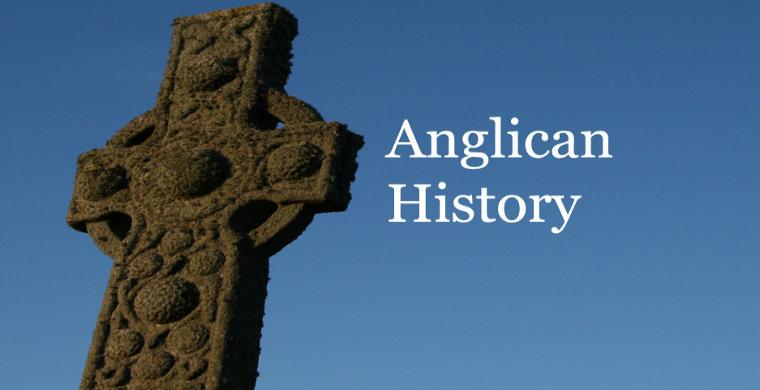ANGLICANISM EXTINGUISHED?
By Roger Salter
Special to Virtueonline
www.virtueonline.org
May 8, 2019
The promised Anglican resurgence of the past two decades or so seems to have petered out. It is hard to discern any version of the recent crop of Neo-Anglican movements and affiliations that sufficiently complies with the classic and confessional Anglicanism of the Reformational era. It is the ceremonial and ritual incidentals of Anglicanism, superficially acquired from the Catholic and high church wing of the communion that happen, by and large, to be the major features of current versions of Christian faith mis-identified as historic Anglicanism (vestments, processions, a certain fussiness at the Lord's table, etc, etc). Current adopters of Anglicanism are introduced to it in revised and diluted forms that neglect to manifest this deeply biblical religious phenomenon in its essence and original expression.
In many cases, added to various optional characteristics now discernible, there happens to be a prominent element of charismatic spirituality and an apparent dominant Semi-Pelagian soteriology pervading the communion. These factors do not in themselves nullify authentic Christian commitment, experience, or ministerial vocation where faith in Jesus Christ is sincere; they simply constitute, from the orthodox point of view, a serious lack of Confessional integrity when compared with the constitutional documents of the Anglican Way whose authority has never been formally rescinded - simply swept aside as an inconvenience to a multiplicity of differing religious tastes and opinion that have been imported into the Anglican movement since liturgical experimentation and doctrinal laxity have exerted their influence.
The problem of creedal divergence and diversity in practice is now dramatically magnified in mainstream Anglicanism where there is little concern or respect for biblical orthodoxy in the realm of Christian doctrine and ethics. The world of Anglicanism is wild with waywardness and disarray.
A centuries-old looseness of approach to the Anglican heritage has culminated in the modern lack of familiarity with the foundation of Anglicanism and the Augustinian basis established by our founders. Even lifelong members as well as recent adherents rarely have the opportunity to encounter the strong biblical and reformational tradition that is the source of our denominational thrust and every-member ministerial momentum. The importance of doctrine has often been underplayed in recent generations, and now particularly so in ours, but grave doctrinal defection has contributed to the releasing of much evil in the central leadership of the Church and the life of its unsuspecting membership.
Doctrinal vacuity is the plague of contemporary Anglicanism. Christian faith, and following of Jesus, begin with belief. Intellect and experience are to be harmonized in development of discipleship. Our mind and its content matters. Brain and heart are to operate in concert under the guidance of Holy Scripture and the direction of the Holy Spirit. Sound theology is the lifeblood of the Church and from it true piety in devotion and duty are derived. The study of divine revelation from various perspectives cultivates a mature and stable sensibility in the believer as mind and affections revel in the nature of the Lord, his thought and deeds, which afford inexhaustible contemplation and evoke our desire for likeness to him.
The lament for our present lean and effete Anglicanism is not to castigate any particular party genuinely worthy of the appellation "Christian" within the broad church of Anglicanism, but simply to articulate the desire that the Reformed and Catholic Ecclesia Anglicana should become what it is meant to be - distinct from the impurities of Rome (where many of the Lord's children happen to be), devoid of the errors of Pelgianism and semi-Pelagianism, watchful as to the role of personal experience and subjective feelings and frames in the formulation of faith and action, reverent always in the worship of God and our walk with him. Cranmer's compilation of doctrine, devotion, and discipline is an admirable place to start. It is safe because it is not a "one man" rule but an ecumenical production of the sixteenth century that does not prohibit development consonant with the Holy Scriptures. It happens to be a worthy benchmark always to be kept in mind.
Labels are always inevitable in religious conversation but they need to be regarded with fair flexibility as they signify certain things to certain people, but ideally Classic Anglicanism is Scriptural (Evangelical), Catholic (in terms of ancient creeds and the best thought of the church fathers), Reformational (in accord with the views and vast improvements of the Luther/Calvinian
(Augustinian) insights of the 16th and 17th centuries, with hallowed and humble reason in the interpretation of the word of God, and regard for beneficial traditions that emerge from the study and understanding of the Bible.
The current false phenomenon of the Three Streams notion needs to be discarded as unnecessary. It is not helpful or new, as if it emerged from fresh discovery. Anglicanism, as with other godly traditions, adheres to an integrated theology and awareness of Word, Spirit, and Sacrament in understanding and practice. For us there is the deep and wide stream of manifold grace. The search for novelty is an egotistical quest for personal gratification - not uncommon among professional theologists, otherwise thologues, as the Scots call them.















